WELCOME TO THE ONLY CAILUONG VIET NAM WEBSITE IN ENGLISH Please , click below to visit other Vietnamese pages of cailuongvietnam.com CLVNCOM2CLVNINFOFORUM

Apart from him being considered one of the greatest writers of Hanoi, Vũ Bằng’s literary and personal portraits were multifaceted. His career spanned all of Vietnam’s three modern historical periods: before 1946, 1946–1954, and after 1954 in the south. Though Vũ Bằng faced decades of suspicion and unjust accusations that were only rectified 16 years after his passing, his literary works remain a testament to love.
Vũ Bằng, born Vũ Đăng Bằng in Hanoi in 1913, was a descendant of a renowned scholarly family from Hải Dương Province who moved to Hanoi and ran a large printing house on Hàng Gai Street. Maybe it’s just the personal bias of a girl who also spent her early childhood inside the Old Quarter, but I always feel like growing up in the heart of Hanoi was what blessed Vũ Bằng’s literature with so much tenderness and melancholy — the trademark spirit of the 36 streets.
Thanks to his family having both a scholarly tradition and a profitable business, Vũ Bằng was granted a favorable education and the opportunity to study in France. Despite his mother’s wishes for him to study medicine, he pursued writing and journalism after passing his Tú Tài (high school) exams. While his contemporaries wrote for a living, Vũ Bằng wrote purely for passion, to the point of admitting: “Nếu trở lại làm người, con cứ lại xin làm báo.” (If I were to become a human again, I would ask to be a journalist again.)

Vũ Bằng's portrait.
Vũ Bằng published his first work, Lọ Văn, at age 17 in 1931. From 1930 to 1954, he served as an editor of Tiểu Thuyết Thứ Bảy and a secretary for Trung Bắc Chủ Nhật, while contributing to various other newspapers in Hanoi. In the 1930s and 1940s, he was influential in the literary scene as one of the most talented and active writers focusing on portraying the realistic lives of urban citizens amidst historical turmoils.
Vũ Bằng’s influence on Vietnam’s prose landscape in this era wasn’t limited to his own work. As the editor of several important newspapers before 1945, Vũ Bằng played a pivotal role in discovering debut works by emerging writers, including Tô Hoài and Nam Cao. For example, he “picked up” Nam Cao’s first short novel Cái Lò Gạch Cũ from a pile of rejected manuscripts, and asked a senior, possibly the writer Lê Văn Trương) to write the preface and renamed it Đôi lứa xứng đôi. This work was later renamed again to Chí Phèo, what most Vietnamese today know it by, becoming arguably the most outstanding piece of realism from the literary movement of 1941–1945.
Furthermore, Vũ Bằng’s work left a mark on the development of other younger writers, as revealed by Tô Hoài: “During those years, Nam Cao was living with me in Nghĩa Đô. We were engrossed in reading Vũ Bằng. If any literary scholar pays attention to Vũ Bằng’s short stories from that period, alongside Nam Cao’s and my own, they will easily notice the influence of Vũ Bằng.”
Vũ Bằng is now honored as one of the greatest names in Vietnam’s literary history, but before this recognition, he experienced a tumultuous fate. During my secondary and high school years of grinding the subject as a Literature-specialized student, I studied my fair share of writers with troubled lives. However, Vũ Bằng was a rare case as he endured a life-long injustice.

Vũ Bằng in a Tạ Tỵ sketch.
Both Vũ Bằng’s personal life and literary career intersect with historical events and political turmoil. In 1946, Vũ Bằng and his family evacuated to the resistance zone, particularly Chợ Đại, Cống Thần (Hà Nam) before returning to Hanoi in 1948, where he discreetly participated in an intelligence network. Acting as someone who “dinh-tê” (abandoned the freedom resistance zone occupied by the Việt Minh, to return to the urban area), Vũ Bằng constructed a cover persona by maintaining the demeanor of a wealthy petite bourgeois. Because of this, many peoplebelieve that Vũ Bằng was the original model for the character Hoàng, a writer detached from revolutionary resistance, in Nam Cao's short story ‘Đôi mắt.’
In 1954, Vũ Bằng went south to work as an intelligence agent under the codename X10. Vũ Bằng continued his intelligence work until reunification on April 30, 1975, but didn’t return to the north even once before he passed away. At the time of his death, Vũ Bằng’s dignity hadn’t been restored due to disruptions in the communication network. His superiors had relocated to Hanoi after reunification, making communication with the south difficult, despite the political changes. Vũ Bằng died as someone believed to have “turned his back on the Revolution” and “migrated to the south with the enemy.”
It was not until the early 1990s, when documents regarding his secret activities were published, that his name and career were finally vindicated. In March 2000, Vũ Bằng was officially confirmed as a military intelligence officer. It was common for “artists to be soldiers, and their artistic works weapons” during the war and Vietnam’s literature even witnessed a generation of soldier poets, but there aren’t many cases of a writer acting as a secret intelligent officer, who never had his identity revealed, like Vũ Bằng.
During his time in Saigon, Vũ Bằng lived in poverty, a stark contrast to his earlier affluence. For the first time in his life, he had to focus on writing to make a living. However, more than just a job, it was also Vũ Bằng’s only way of expressing himself and bearing the multitude of injustice and longing. The writer Nguyễn Xuân Khánh stated that "the pain and loneliness he experienced contributed to the unique qualities of Vũ Bằng's literature.” I like to think that Vũ Bằng’s writings even became the catalyst for his actual vindication.
Author: tanco
Source: saigonneer
Reader Comments
Newer articles
Older articles
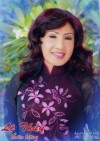 Le Thuy – 50-Year Career in Performing
Le Thuy – 50-Year Career in Performing
 The magic of the Vong Co song
The magic of the Vong Co song
 Legendary cai luong singer Thanh Duoc passes away in US
Legendary cai luong singer Thanh Duoc passes away in US
 NS Hong Nga: Going to the US to live a difficult life, being neglected by her children, returning to Vietnam to be sick and lonely
NS Hong Nga: Going to the US to live a difficult life, being neglected by her children, returning to Vietnam to be sick and lonely
 Dustin Nguyen jump starts his career and a new life
Dustin Nguyen jump starts his career and a new life
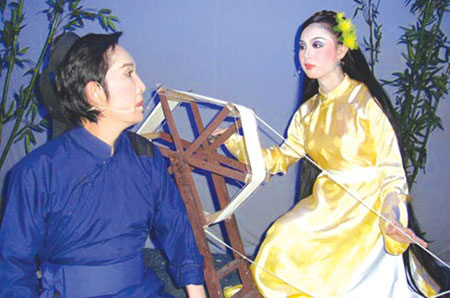 Queen of cai luong brought back to life on stage
Queen of cai luong brought back to life on stage
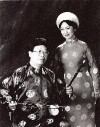 THE SURVIVAL OF THE TRADITIONAL MUSIC (NHAC CO TRUYEN)
THE SURVIVAL OF THE TRADITIONAL MUSIC (NHAC CO TRUYEN)
 Sa Dec Flower—Ornamental Festival 2025 to be held in December
Sa Dec Flower—Ornamental Festival 2025 to be held in December
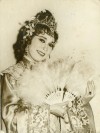 Actress Bich Hanh’s biography and memories
Actress Bich Hanh’s biography and memories
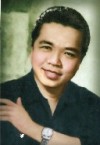 Remembering one of the greatest actors in Cai luong arts – the People’s Artist (NSND) Ut Tra On
Remembering one of the greatest actors in Cai luong arts – the People’s Artist (NSND) Ut Tra On
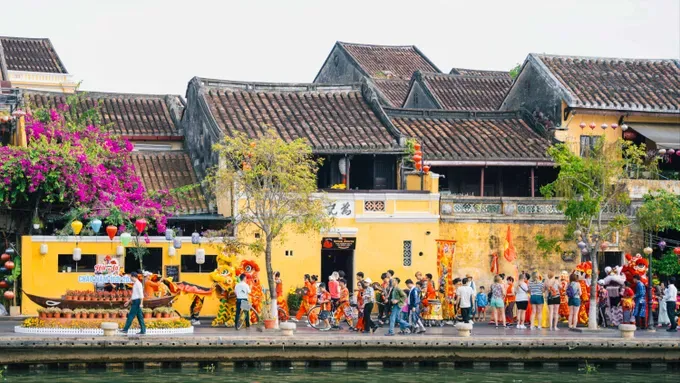 Nguyen Tieu Festival held in Hoi An
Nguyen Tieu Festival held in Hoi An
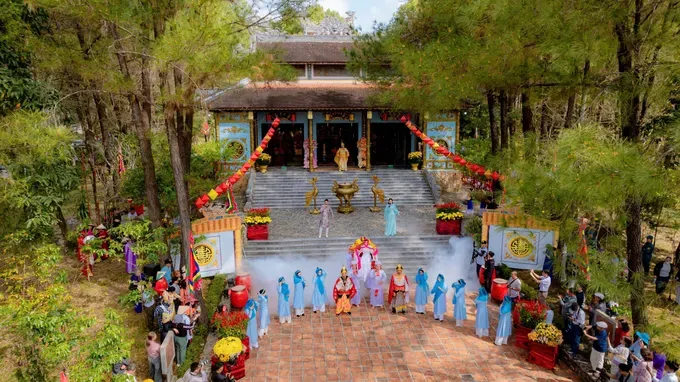 Princess Huyen Tran Festival opens in Hue
Princess Huyen Tran Festival opens in Hue
 Every Bánh Chưng Season, Vietnam’s Lá Dong Capital Comes Alive With Harvest Frenzy
Every Bánh Chưng Season, Vietnam’s Lá Dong Capital Comes Alive With Harvest Frenzy
 Fireworks to illuminate 16 locations across HCMC on Lunar New Year’s Eve
Fireworks to illuminate 16 locations across HCMC on Lunar New Year’s Eve
 HCM City Flower Street for Tet 2026 to span three venues
HCM City Flower Street for Tet 2026 to span three venues
 Vietnam Welcomes 21m Tourists in 2025, Highest-Ever Figure in History
Vietnam Welcomes 21m Tourists in 2025, Highest-Ever Figure in History
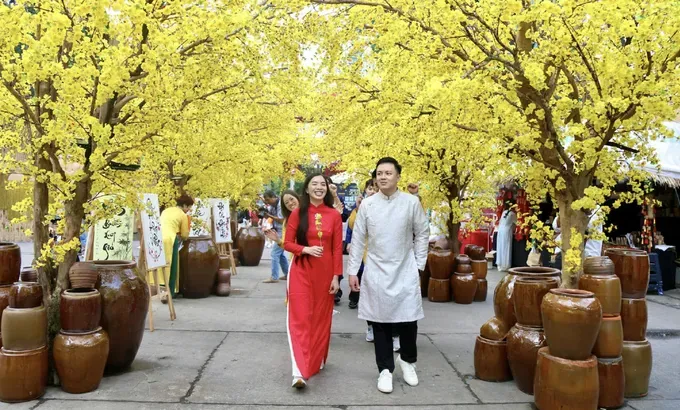 Vietnamese Lunar New Year Festival 2026 scheduled for February in HCMC
Vietnamese Lunar New Year Festival 2026 scheduled for February in HCMC
 Schools promote cultural heritage through traditional arts for students
Schools promote cultural heritage through traditional arts for students
 High-pressure test flight safely lands at Long Thanh Airport
High-pressure test flight safely lands at Long Thanh Airport
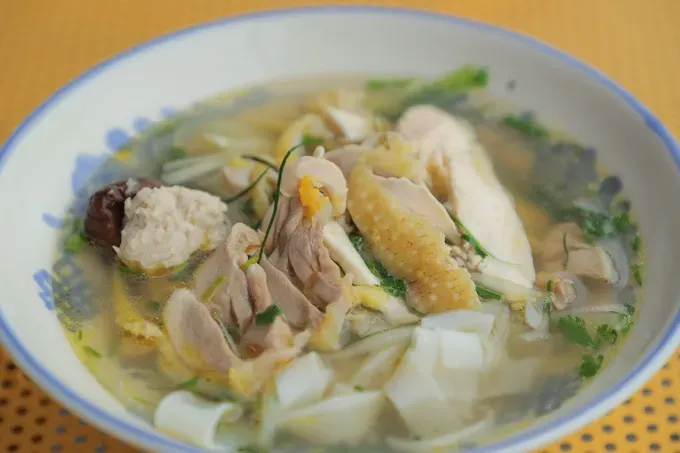 Pho Day Festival 2025 expected to attract 100,000 visitors
Pho Day Festival 2025 expected to attract 100,000 visitors